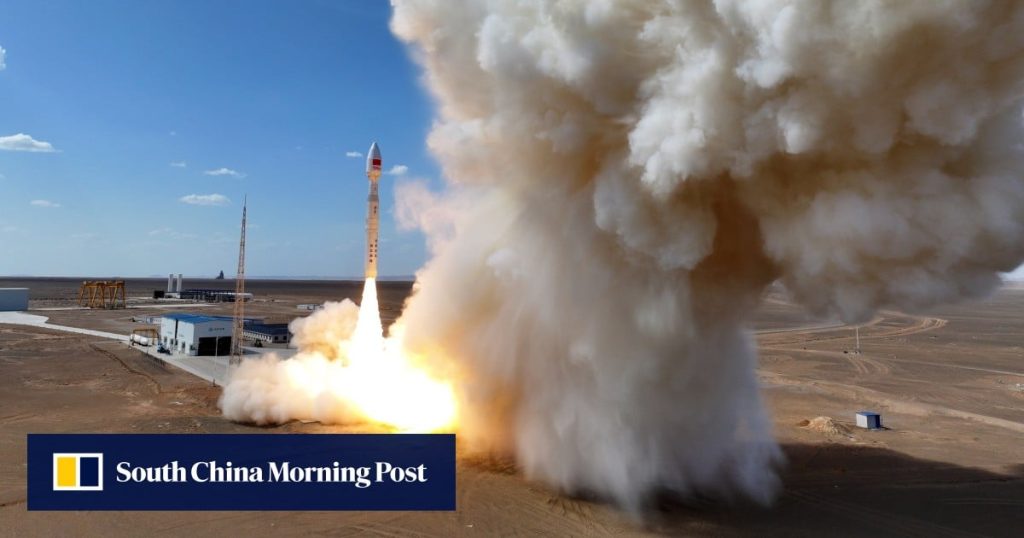Two satellites from ThumbSat, a start-up based in Tijuana, just across the border from San Diego, were among a batch of seven launched into sun-synchronous orbit earlier this month by Beijing-based CAS Space on board its solid-fuel Kinetica-1 rocket.
ThumbSat hailed the launch of its femtosatellites – each weighing less than 100 grams – as Mexico’s first commercial mission to low Earth orbit. “The mission is simple but powerful: to prove that satellites no longer need to be big to be meaningful,” it said.
ThumbSat-1 carries a selfie payload while ThumbSat-2 is equipped with an artistic one. The company also plans to install small, low-cost receiving stations across Mexico, allowing students and amateur users to pick up signals and take part in the mission.
CAS Space said the launch showed the growing international interest in its rockets, which offered “a good balance of cost and reliability”. It also called the mission a step forward in China’s efforts to expand space cooperation worldwide.
It was “a milestone for China’s entry into the North American commercial launch market”, it said.
The two ThumbSat satellites were developed in Mexico, with CAS Space providing a custom-built separation deployer designed for modular upgrades and future scalability.


